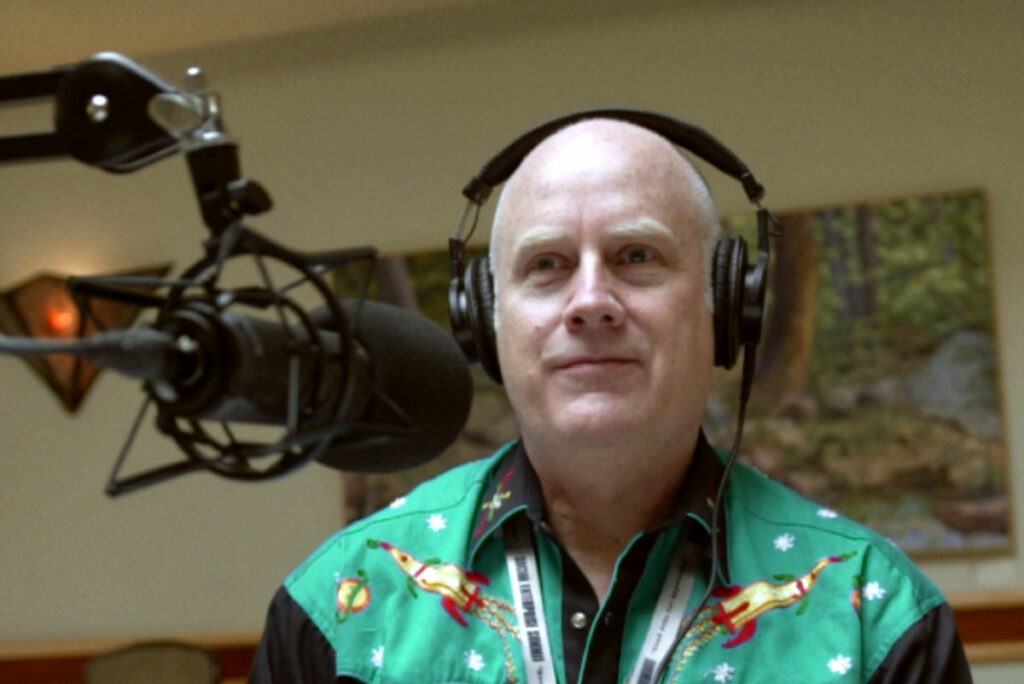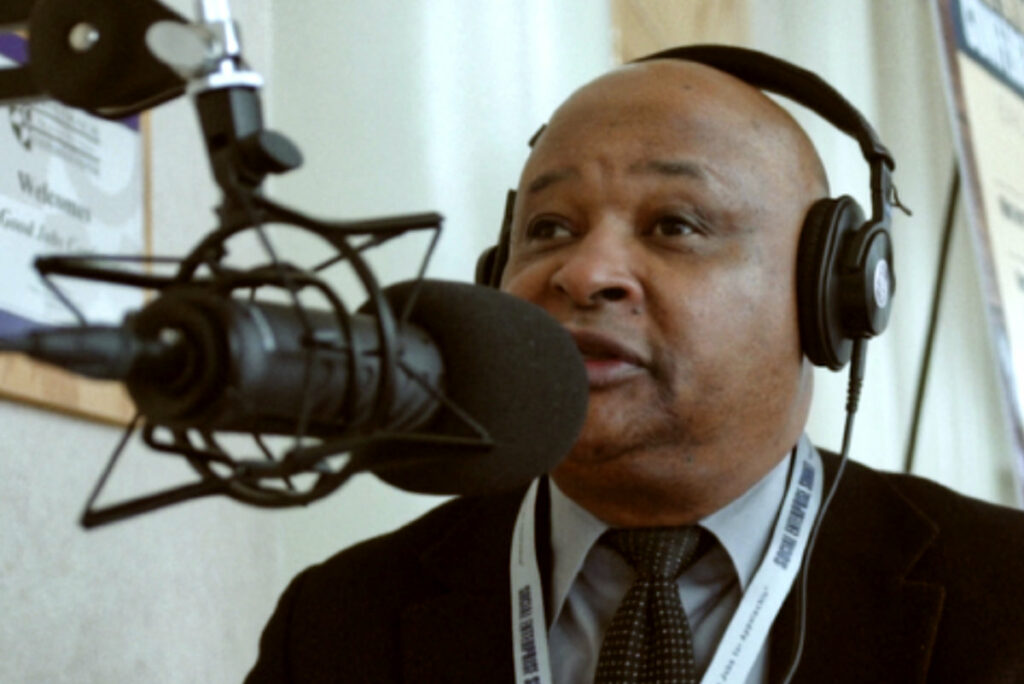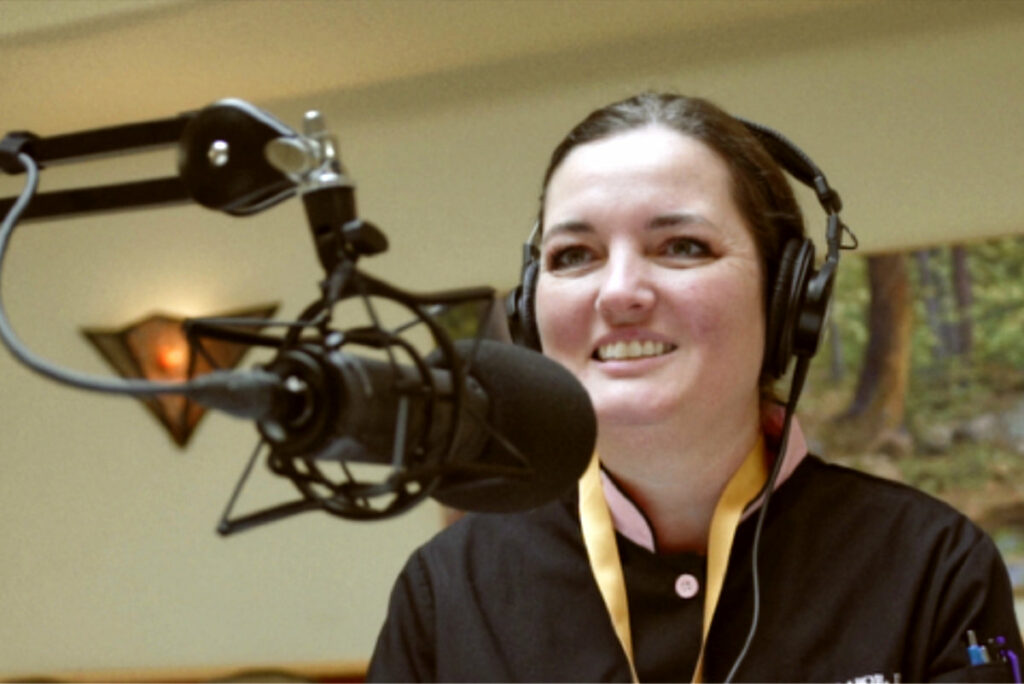

When sitting down with Chuck Toussieng, you’re immediately struck with one thought – he cares deeply about the impact his work has! Chuck spends his days writing various types of software programming and at night he teaches students how to become independent consultants in technology. The affordability of real-estate in areas like Richwood offers independent tech companies like Richwood Scientific the room to grow comfortably as a business. And as a part of that growth, Chuck told us about a second building they are purchasing right down the street from their first one which will dawn a 25,000 foot larger space and incorporate a community owned internet service provider, a fiber installation company as well as apartment spaces!
Richwood Scientific holds a free twelve week boot camp each year for individuals to come and get evaluated on their level of programming knowledge and become better versed in the discipline. Chuck tells of several success stories from that program of individuals finding their strides toward programming careers! It is also very important to note that each person that has received programming training through Richwood Scientific has been able to stay and work in West Virginia!
In 2015, J. Morgan Leach and a few fellow business partners started the West Virginia Farmers Cooperative. J. spoke about the state’s constant focus on energy and debating about coal and other fossil fuels with a conversation about the agricultural possibilities in West Virginia. Since the industrial hemp farming act of 2002 was passed, utilizing hemp to become a viable business model became a reality in the state that J. and his partners turned into a great opportunity.

J. told us that he grew up around agriculture and was exposed to farming life as a child, but it wasn’t until he finished law school that he considered agriculture a means of income and local economic sustainability. Although the West Virginia Farmers Cooperative is primarily focused on the needs of West Virginia and has up to 40 members, the cooperative has established very successful relationships with farmers in Pennsylvania, Virginia, Kentucky, Tennessee, Vermont and other states. Morgan touches on what it means to come out of 80 years of prohibition and create new and productive ways to grow hemp for farmers and what are the smoothest routes of getting their crop to market.

After meeting Rev. Matthew J. Watts, one can easily say they have met a man who truly puts the needs of others and his community before himself. Rev. Watts and the Tuesday Morning Group began looking at the crisis facing the West Side of Charleston and wondering if they created a model there that successfully has an impact on the community, maybe that model can be replicated in other struggling areas of the state.
After seeing the struggles facing western Charleston communities, Rev. Watts started meeting with colleagues every Tuesday morning to assess their communities and what approaches they may take to begin servicing them. Thus, the group started calling themselves the Tuesday Morning Group. The group has met now for 11 years and targets serious level issues in the black community such as high rates of poverty, lack of decent education, high crime, health issues, overdose/addiction and others.
Rev. Watts and the Tuesday Morning Group has started to take a lead role in working with legislature to create pilot projects for the West Side of Charleston. However, the Tuesday Morning Group’s work doesn’t stop there. They’ve made such progress in their area that they now work with other communities throughout the state and their legislatures as well to implement the needed changes for prosperity and growth in the neighborhoods it has been absent from.
Fruits of Labor is a company that targets the betterment of at-risk youth and adults in West Virginia. Established 17 years ago, Tammy took her lifelong love of cooking which she shared with her family members and developed a program that would impact many lives throughout Appalachia. Tammy describes how transformative and personally rewarding it is to see young people enter their program and find something very special in themselves that they weren’t able to focus on before. The culinary training program was implemented in 2013, twelve years after the program began.

Many of the students in the Fruits of Labor program come from broken homes or homes where family is absent altogether. So, the fact that Tammy’s family is directly involved has a tremendous impact on the students. She even mentions that some of the students refer to her father as “Pops”. Tammy describes the importance of the students seeing a family interact and that gathering around something as important as our food can bring us together and keep us strong.

Lost Creek Farm became the culinary business it is between 2014 and 2015. Since returning to the abandoned farm, Mike and business partner Amy Dawson have worked very hard to bring the traditions surrounding Appalachian cuisine and open people’s minds to the cultural relevance of food in our state. Although farming is a big part of their business, Mike is not hesitant to attribute their notoriety and success to their culinary business.
After serving pop-up dinners locally for a period of time, Mike and Amy, with the encouragement of a few friends in the business, decided it was time to take their work to a new level and expand. After taking their business to the road, they noticed an immediate following! Mike told us that once they started to embrace the setting and its relevance to the dishes they were preparing, it was a natural step to start integrating the storytelling aspect of their dinners. Mike touched on the importance of being able to articulate what their food means and offers the most genuine Appalachian experience provided by people from the same regions the food originates! He told us his goal is to create a real product that other companies claiming the Appalachian theme can’t tap into.